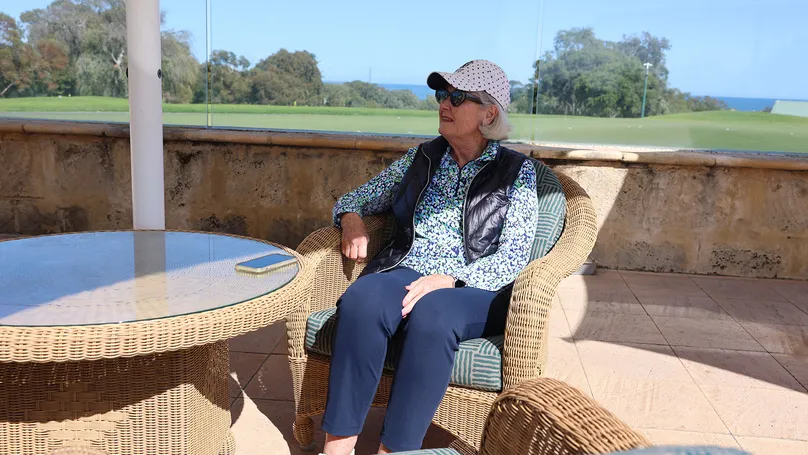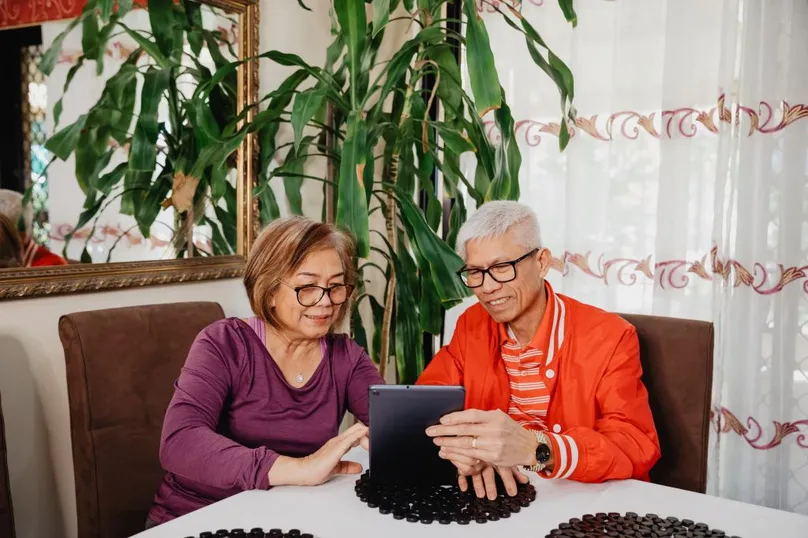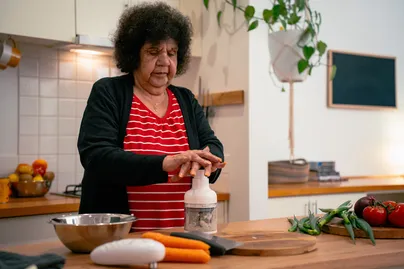Maintaining independence as you age means being able to continue living your life as you choose.

Reclaiming your independence means maintaining your physical and thinking abilities. It also means having access to resources and support systems. It means you make your own decisions about your health.
Indicators of how independent you are include being able to:
- Socialise with friends or relatives such as grandchildren
- Use a telephone or mobile phone
- Use private or public transport
- Manage your finances and bills
- Prepare meals
- Manage your self-care
- Shop for necessities
- Manage your medications
- Keep active
Why is independence important?
The loss of independence can be a challenging experience. As you age, it’s natural for your abilities to change. This may lead to difficulties with mobility and managing health conditions. It could also lead to struggles with mental health, staying socially connected, and financial stability.
Retaining your independence can have many benefits:
- Better physical and mental health
- Increased confidence and self-esteem
- Improved sense of purpose and quality of life
Being yourself
The ability to make choices and decisions throughout the day has a big impact on how you feel about yourself. If you are no longer managing the decisions in your life or able to express yourself, this can lead to depression, anger, or anxiety, which can impact other areas of your life.
Your health and happiness
Maintaining strength, balance, and mobility positively impacts your ability to stay independent. Losing strength and balance can lead to falls, injury and hospitalisation. Injuries make it hard to maintain independence. However, there are products available that can help you.
Your sense of purpose
Loss of independence can be isolating. People who are isolated can develop feelings of hopelessness and depression, which negatively affects mental health and quality of life. Independence and the ability to choose when and how you connect with others has a big impact on your sense of purpose.
How can I reclaim my independence?
Reimagine ageing
Change your perspective! Ageing doesn’t have to be a negative experience. Yes, there will be challenges, but there are helpful products, new initiatives, and supports available to help you stay independent and enjoy your life.
Stay mentally active
Keep doing what you love. Maintaining a healthy and active mind is important. So, if you have a particular hobby or interest, keep doing it. If you’re finding it hard to continue with it, talk to your family or carer about how they can help you maintain your interests.
Maintain social connection
Maintaining old friendships and cultivating new ones not only helps reduce loneliness, it also helps you retain a sense of belonging.
Exercise
Australian Physical Activity Guidelines encourage older people to do 30 minutes of moderate-intensity exercise each day. Regular physical activity can provide immense benefits for your health and happiness.
Move around freely
To stay connected and independent, you need to be able to travel to the places, events, and activities you want to go to. There are many transport options available to help you get around. Your family, a friend, a carer, or a service provider can drive you to where you need to go, or you can take public transport. Some organisations and local councils provide free community buses.
Ask for help
If everyday activities are becoming more challenging and you need some help, there are assistive products and in-home services available depending on your situation. You can find more information on the My Aged Care website.
Using assistive products
Roughly half of the common barriers older people face when tackling daily activities can be addressed by finding and using assistive products. They are designed to make those everyday tasks you might struggle with easier, so you can keep doing the things you love.
There are thousands of products that can make a difference in all areas of your life. Check out these ideas for low-cost assistive products to make your life easier.
Low-risk assistive products
- Hand-held grabbers that allow you to reach up or down to pick up items, such as a jar from a shelf or a shoe from the floor
- Lever handles on taps and doors if you have trouble gripping and turning
- Gadgets that help with kitchen chores like can and jar openers, long-handle dustpans, and electric knives
Personal care products
- A shower chair to avoid the risk of falls in the shower
- Long-handle bath sponges if you have trouble reaching to clean your back
- Zipper pulls, button hooks, and long-handle shoehorns to make getting dressed much easier
Mobility assistive products
Mobility assistive products are a great investment if you have trouble moving around, as they can reduce pain and stress in joints and reduce the risk of falling.
- Walking canes
- Orthotic devices
- Wheelchairs
- Walkers and wheeled walkers
Communication assistive products
- Hearing aids, television headsets, and telephone amplifiers
- Voice command and speech generating devices
- Mobile phones, tablets and computers specially designed with large text screens, large buttons, and simple navigation systems
Additionally, simple measures such as installing grab rails, ramps, or non-slip mats are all measures that can help to make your home a safer place. If you live alone, an alarm system or a pendant alarm may give you the confidence to remain independent in your own home for longer.
Where can I get help to reclaim my independence?
The information provided above may not be suitable for everyone as each person is different. For more information about strategies to remain independent in your home or suitable assistive technology, you can seek advice from:
- Your doctor
- An allied health professional such as an occupational therapist, physiotherapist or exercise physiologist
- My Aged Care
- A LiveUp Navigator - get in touch with one of our helpful team on 1800 951 971.
References
Australian Government Department of Health. (2021, May). Australia's physical and exercise guidelines for older Australians. https://www.health.gov.au/topics/physical-activity-and-exercise/physical-activity-and-exercise-guidelines-for-all-australians/for-older-australians-65-years-and-over
Ending Loneliness Together. (2024.) Resources: Tipsheets. https://endingloneliness.com.au/resources/
LiveUp provides free information to help you make informed decisions about your health. This information is for general and educational purposes only, is not intended to provide a comprehensive guide, and does not replace medical advice. Everyone is different, so some of these tips may work better for you than others. You should use your own judgment and seek medical advice when applying this information to yourself, to determine if it is suitable in your circumstances. Your use of, or reliance on, this information is solely at your own risk. Independent Living Assessment Incorporated is not responsible or liable for any injury, loss, or damage caused as a result of your use of, or reliance on, this information.
Download and print this article:
You can print out the PDF and stick it to your fridge or file away the tips to revisit at a later time.

Read more Maintain my health articles
Did you enjoy this article? You may also like reading similar healthy ageing articles.
See all Maintain my health articles

